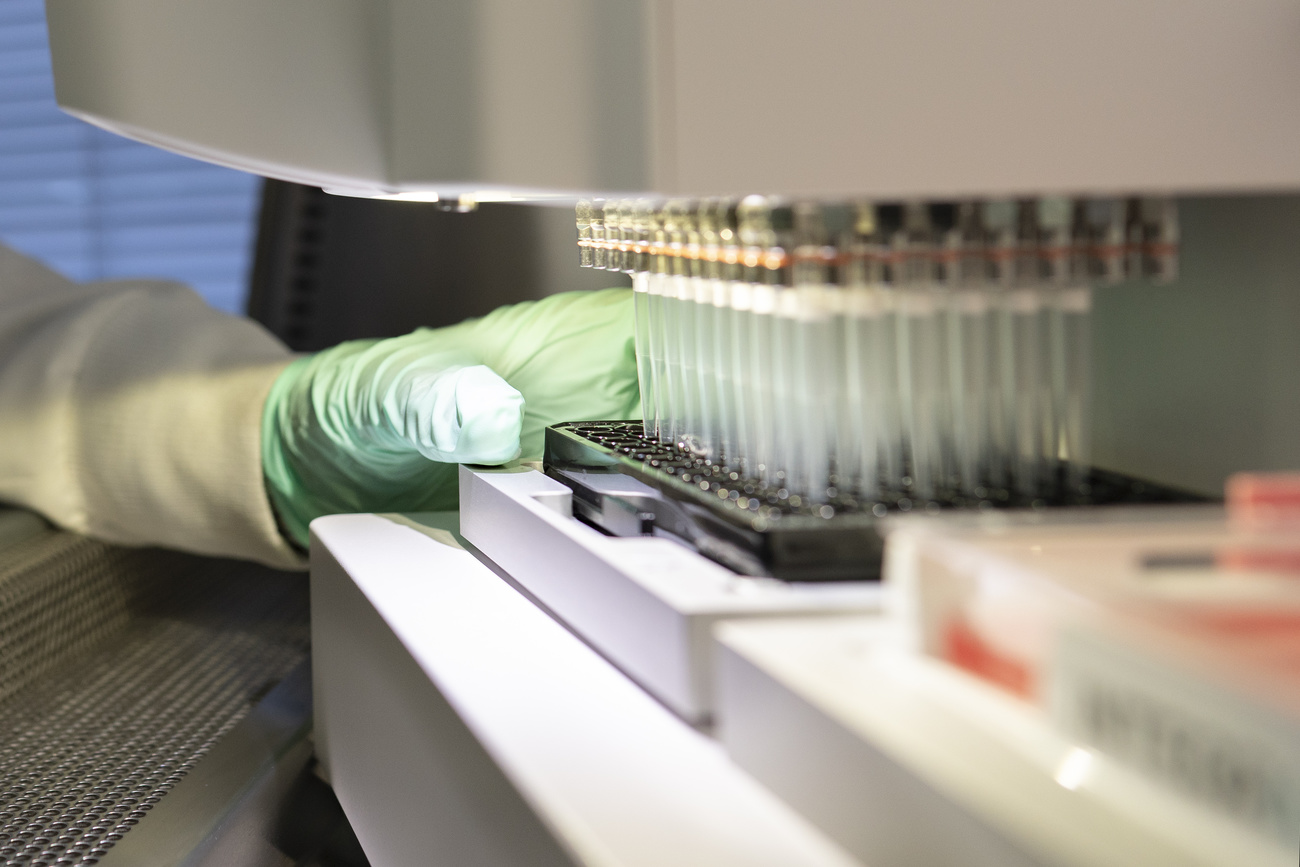
Swiss research played key role in new Alzheimer’s drug

A newly approved treatment for Alzheimer’s was built on the foundations of Swiss scientific research, says the University of Zurich.
On Monday the United States regulator granted fast-track approval for the drug aducanumab, which will be marketed in the US as Aduhelm by biotechnology company Biogen.
The active ingredient in the drug, the aducanumab antibody, was discovered by researchers at the University of Zurich’s Institute for Regenerative Medicine and the Zurich-based biopharmaceutical company Neurimmune.
Alzheimer’s is the most common form of dementia in the elderly, affecting tens of millions of people worldwideExternal link. It is caused by deposits of proteins, called amyloid plaques, in the brain that accumulate over years and damage neurons. It results in progressive memory loss and impairment of learning, orientation, language and planning abilities.
Zurich researchers identified antibodies that neutralise amyloids and “ultimately discovered the substance called aducanumab”, the University of Zurich said in a press release on Monday eveningExternal link.
Neurimmune, a spin-off company from the university founded by two of its professors, says on its websiteExternal link that it is collaborating with Biogen and Japanese company Eisai to develop the drug.
The decision by the US Food and Drug Administration (FDA) to grant the treatment “accelerated approval” has met with some criticism. Drugs can be fast-tracked “to provide earlier access to potentially valuable therapies for patients with serious diseases where there is an unmet need”, says the FDAExternal link.
The FDA concluded that the likely benefits of the treatment outweighed the risks of applying a therapy with limited and inconsistent clinical trial data.

In compliance with the JTI standards
More: SWI swissinfo.ch certified by the Journalism Trust Initiative





























You can find an overview of ongoing debates with our journalists here . Please join us!
If you want to start a conversation about a topic raised in this article or want to report factual errors, email us at english@swissinfo.ch.